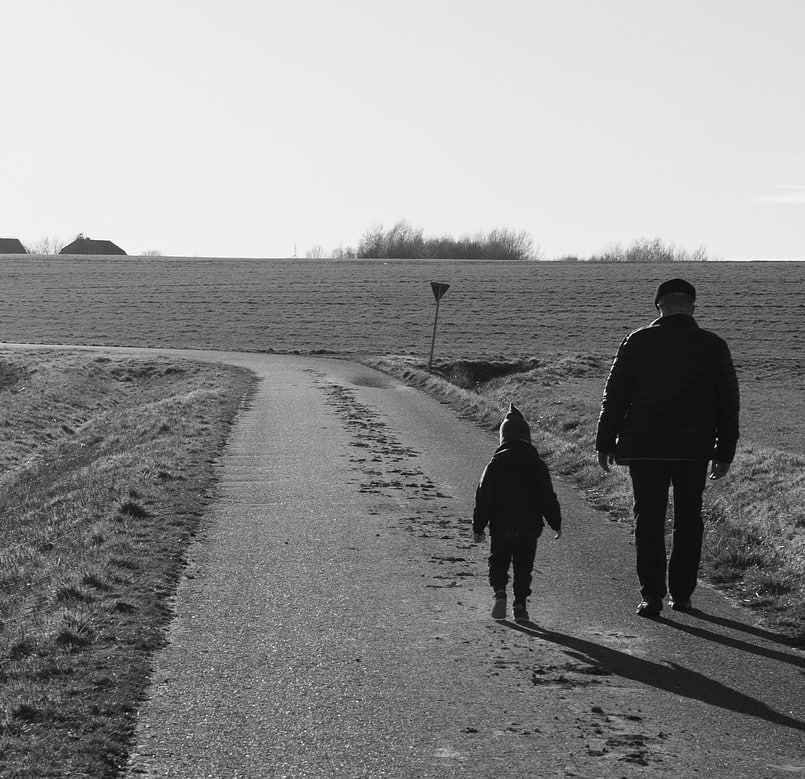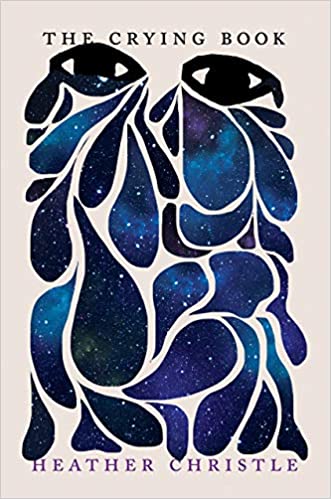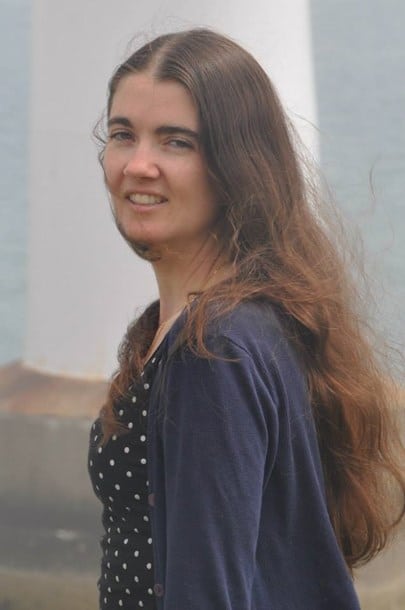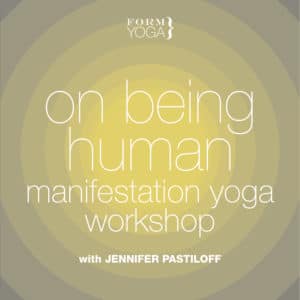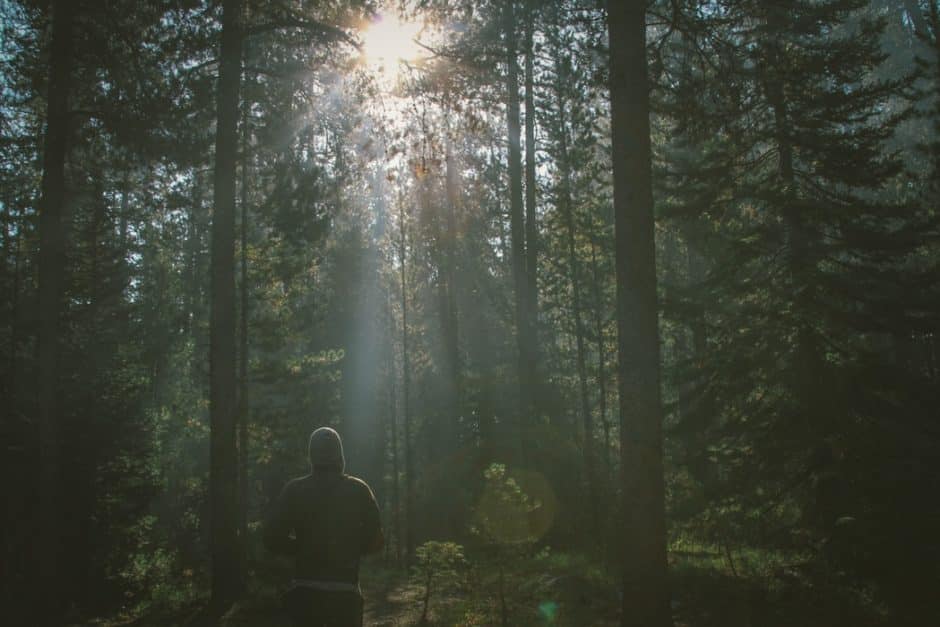By Daniel Osborn
On Sundays, my parents drove my sister and me to Hingham for dinner with Nana and Papa Al at my father’s childhood home. Growing up, this house was the thing of legend. Unassuming in a town notable for its critical mass of colonial mansions, conspicuously displaying plaques from the local historical society that advertised the 18th and 19th century dates of their construction, generations of Osborns had lived in this modest home with acres of lawn and woods beyond. It did not have a plaque but it possessed an iconic place in family lure.
The story goes that my Papa was born upstairs, in the room at the end of the hall, past the bathroom. Hearing this story as a child, it seemed otherworldly. I could not fathom a birth outside of a hospital, let alone a lifetime spent living in the same house. Yet, my stoic Papa was one with the home, devotedly tending to the land, the custodian of the property. His love was quiet and understated, more diligent than overtly affectionate.
The Hingham house was always a source of pride for me. It echoed with unmet relatives who seemed so distant as to have lived in a time unimaginable to me and the trappings of my late 20th century childhood. I was raised on Ninja Turtles and Nickelodeon and the few glimpses I had of previous generations from yellowed photographs made me question whether they were at all acquainted with the automobile and telephone, let alone cable television and the action figures spawned by cartoon programming. Black-and-white people once inhabited the home that I came to associate with endless rounds of card games with my Nana and evenings spent trying to up the sarcastic ante one pithy remark at a time in between bites of pizza from Denly Garden.
My Nana usually had enough cutting remarks in reserve to protect her honorary title of wittiest Osborn. Dorothy Parker may have woken up every day to brush her teeth and sharpen her tongue but my Nana could have held her own at the Algonquin Round Table, if only circumstances had favored her in youth. The premature death of a mother, an alcoholic father, the Great Depression, and a childhood spent bouncing around between relatives does a lot to develop a biting sense of humor but is not, exactly, the formula to getting an adoring audience of sophisticates to guffaw at one’s quips.
Arriving at the Hingham house, I would often see my Papa sitting outside in the shade by the barn in the backyard. Beyond the barn was the field. On days when I would walk straight into the house without checking by the barn, we would be greeted by my Nana at the kitchen table. “Where’s Papa” somebody would ask, inevitably eliciting the response, “He’s down in the field.” The low muffle of a ride-on lawn mower indicated the distance between Papa and the house.
Whenever I strain to conjure a mental image of my Papa, I imagine him riding his lawn mower in the field or sitting on a white plastic lawn chair down by the garden wearing an almost neutral expression that all but conceals his urge to be younger and physically fit enough to tend to his crops without the reluctance of a body in its ninth decade. In the days immediately following his death, I sat in rapture in the same kitchen where my Nana and I often ate lunch and exchanged verbal jabs. In these emotionally exhausting days, this space was transformed into a sanctuary from grief. Eddie Carnes and Tom Studley, my Papa’s lifelong friends, regaled my family with stories from their youth and filled in the details of a life I only knew in broad strokes. Only a teenager when my Papa passed, I had hardly considered his life before my time. My adolescent mind was still too enveloped in the immediacy of youthful egocentrism to entertain the notion that Papa was more than who he was in relation to me in this particular stage of his life. His mannerisms were given a backstory with each colorful accounting of his time as a young man.
Tom’s loose and wrinkled skin hid in its valleys his World War II era Army tattoos, the ones gotten when deployed with my Papa in the Pacific. Tom spoke without the reservation that marked my Papa’s interpersonal style. For every moment of silence we spent together in that kitchen during his life, Tom volunteered to fill this space with war stories. Now, my Papa’s limp had an origin. It was not the toll taken by time, the signifier of age I assumed but, instead, the emblem of personal sacrifice worn long after parades ended and uniforms were relegated to collect dust and musty odors in closets. Eddie and Tom laughed as they recounted my Papa’s impressive physical strength as he lifted bombs and other munitions with apparent ease. By the time I started planting the garden with him, his broad shoulders and thick hands were a reminder of a gradually eroding powerfulness. My presence in the field was, in part, because I now enjoyed my own ease with physical tasks that were increasingly becoming out of my Papa’s reach, too demanding for him yet not even registering with me as taxing.
It was in the garden that I felt most like I was participating in my family’s heritage. As a child, I watched with awe and embarrassment as my Papa and father used tools and unveiled their adeptness at maintaining the property. Over the creek bed separating the grassy field from the tree-lined woods beyond, my Papa and father built two foot bridges by hand. I observed as they measured and cut, ordered and arranged, and, all the while, worked in concert in a nearly unbroken silence. From a pile of lumber emerged newly engineered connective tissue to the untamed portion of the property. While I am sure some trivial duties were delegated to me, I felt utterly inept in contrast to their aptitude for executing the undertaking. Then and now, tools are alien to me. My dandy-like tendencies precluded any understanding of their process. I simply knew that my Papa possessed a work ethic and an acuity for such tasks that mystified me.
My father worked alongside his father on these types of projects throughout my childhood. Together, they ascended ladders and repainted the house. They cut down trees and chopped the wood. I played cards with my Nana and looked on from a distance much of the time. The two of them completed tasks together, both intuitively understanding the nature of the work and the processes at hand. Neither looked dumbfounded enough to ask at each step along the way, “What do I do next,” a question I swallowed more than I posed, lest I appear totally lost in these chores. But, there was always a tension between the two men.
Papa Al spoke infrequently, using his hands and a sunrise-to-sunset work ethic, instead, to communicate to the world. Yet, he always managed to connect with my sister and me. Without fail, he would greet me with the question, “How’s old Chester,” inquiring about my childhood dog. I would give an update, keeping silence at bay for a moment. It seemed to my father that from the time his father became Papa Al to his grandchildren, his emotional distance and unpolished paternal style were replaced with a more affectionate state. My Papa would always remain a quiet man but, to my father, his dad had undergone a transformation into a more gentle person. My father watched on as Papa unfurled a spirit unknown to him as a child living under the yoke of a more stern paternal figure.
The time in the garden during my youth that defines my memories of Papa Al are markedly different than the associations my father has with his childhood. As Papa introduced me to the process of tilling the soil and supervising the ground until it bore fruit, I adopted an enthusiasm for the work. On occasion, my father would recount the laboriousness of being a child on these acres with the grass-to-be-mowed and the garden-to-be-weeded. A favorite didactic tale my father would recount was when he would be caught or accused of being bored. His father would then tell him to go to the garden and weed a row of string beans. In my father’s account, this could occupy the rest of his evening, replacing boredom with hours on his hands and knees plucking unwanted vegetation in between the fledgling plants. The lesson being conveyed was simple. Papa had changed over time and being his grandson was a different experience than being his son. While I got to sit in the back of the trailer that was hitched onto the lawn mower, enjoying a leisurely, albeit bumpy, ride around the property with my Papa as the chauffeur, my father was subjected to a different person in his youth. The quiet yet doting Papa was not the man my father was acquainted with at the age when he was called on to tend to the garden.
Whereas my father recounted the parts of his youth with decades-old frustration, during my teenage years, I enjoyed the work and was surprised to find an outlet to contribute to the property as more than a Sunday tourist, hoping Nana prepared my favorite dessert or stocked my preferred snacks in the back hall pantry. But, before I was invited to plant the garden, the field was where I ambled. When sports were the centerpiece of my youthful pursuits, my father and I would play catch there. Somewhat uncoordinated but determined to improve, I would chase down the baseballs that ricocheted off my glove and hurl them at my father with varying degrees of accuracy. What I lacked in innate athletic prowess, I compensated for in effort. For well over a decade, I dutifully attended practices and obediently followed coaches’ directives. For this, I was frequently rewarded with third string status and a spectator’s view of fields from the sidelines. Yet, on this hallowed ground, my father and I would throw the ball in near silence. These hours held the promise of enough improvement in my skills to ascend the ranks of little league athletics.
One day, my father presented me with a green and red bow with a quiver of arrows. In the otherwise unbroken expanse of the grassy field was a lone tree which became my target. The bow was a vestige from my father’s childhood, before the term “free range” was used to describe a parenting style which typified the autonomy afforded to his generation. With the other neighborhood kids born during the Eisenhower Administration, they would take turns shooting an arrow into the air, scattering around the property, each following the arc of the projectile and vying to be nearest when it plunged back down to earth. Raised before the concept of “helicopter” parents had taken root in the American zeitgeist, my generation straddled this laissez faire approach that granted tacit permission to young Baby Boomers’ bow-and-arrow pastimes and the more zealous hovering that I would observe later in life in affluent suburbia where parents chose to live vicariously through their Gen Z children. Listening to my father tell these stories as he taught me to aim the arrow and release it towards the tree, I was fascinated and horrified by the audacity of his childhood self to scramble across the field evading medieval weaponry. I was also envious, knowing this would not be replicated by me and my friends even with the bow in my possession.
But my ambling lasted only until I was recruited to till and plant. On the first day of what would become an annual tradition, my Papa sat just beyond the freshly plowed soil and gave instructions for how to convert the churned dirt into a series of neat and orderly rows across an expanse that approached the size of a football field. It was at this moment that my Papa handed my father a wooden spool around which was wrapped twine. The wood was dry and on the cusp of splintering. The thin rope looked aged and brittle. While my Papa sat and explained the process in short punchy sentences, my father interjected with a little back story. This spool and rope were ancient, even to him. It was a rudimentary way to ensure the rows of plants were straight and uniformly spaced. This mattered because, soon, my father and I would strike the ground with our hoes and insert hundreds of saplings to the ground.
Even though my Papa and Nana were the only two people living at the house, he filled the garden with dozens of plants that far exceeded the demand of the household. Row upon row of tomatoes, bell peppers, hot peppers, zucchini, summer squash, butternut squash, and other varieties filled a plot that was larger than my childhood backyard. The space where I would play soccer or lacrosse with my father or search for crickets when I was younger was but a parcel of the land my Papa plowed each year and filled with vegetable plants. The overabundance of the annual harvest enabled my Nana to produce batches of her hot pepper relish, a beloved condiment to sandwiches and hot dogs. When the relish was being made, the kitchen felt dangerous and toxic. An enormous pot sat atop the stove, heat radiating off the burners. The pungent odor of white vinegar, onions, and peppers enveloped the house and penetrated one’s senses to the point where breathing felt nearly impossible and eyes strained to remain open. In the end, the relish was jarred, the tangy and spicy sauce lasting only as long as the collective self-restraint of the family could muster.
The excess of tomatoes would serve as the fodder for tomato and mayonnaise sandwiches served on scali bread with sesame seeds. Throughout my childhood, my Papa would cultivate this yield and I would arrive at the family house and be greeted by juicy tomatoes that I would savor as Nana and I played round after round of War, the only card game I ever seemed to master and, unbeknownst to me, her least favorite. The only skill required by the game was enough hand dexterity to flip one card at a time until one player possessed the entire deck. Often, I would win and benevolently split the deck again with my Nana, taking pity on her and keeping the game alive. Later, after her death, relatives would lovingly recount how little she enjoyed the game. She humored me, nonetheless.
With the remaining yield, Papa would fill the cart that he hitched to his lawn mower and drive up and down the neighborhood, delivering bags of produce to the community. Always understated, Papa would, nevertheless, find ways to demonstrate his generosity. Bestowing fresh vegetables to the neighbors was one of the acts of selflessness that came naturally to him. It was a small gesture that seemed kind but trivial to me at the time yet is so rare as to almost seem obsolete today.
With the rope unspooled, my father and I used our hoes to commence digging small holes. I had seen the hoes hanging in the barn for years with all the other farm implements that looked menacing. When my Papa was a child, the property was actually a small working farm. The family kept cows and in the grassy field were a few mounds that I was told were their final resting places. With the rampant sarcasm in the family, I never knew definitively if this was true or yet another sly remark. Many of the tools from the days of cows and more robust farming remained suspended from the rafters or mounted to the barn’s walls. We only had use for the spooled rope and hoes.
The dimensions of the garden invited my Papa’s generosity. Parceling the space between friends and neighbors, we only had to fill a quadrant on this inaugural day. Rows of corn stalks would soon grow tall in an adjacent plot, put there by John Barry. Mr. Barry was, to me, a specter during this time, a frail figure dutifully walking the grounds parallel to the work underway by the Osborns. Politely, I would wave and greet him on the occasions when our visits to the garden overlapped. Slow-moving and hunched, Mr. Barry would walk the few hundred yards from the driveway to the garden where he would plant and tend to his hundreds of heads of corn.
Years after my grandfather passed away, Mr. Barry exceeded the brevity that typified our exchange of pleasantries and informed me through a crooked smile that this garden saved his life. Recovering from surgery, he lacked the motivation to undertake physical therapy yet the long walks from his car to the garden offered the exercise he needed to recover. My Papa’s subtle generosity, the mere act of lending him a fraction of an acre, galvanized Mr. Barry to step out of bed and into the world again when he just as easily could have succumbed to resignation.
If playing catch in the field and missing the tree when I released the arrows from my inherited bow taught me anything, it’s that my physical coordination was underwhelming. While my Papa impatiently observed his son and grandson completing the annual ritual that had been his prerogative decade after decade, I struck the soil and carved out space for our plants. Lacking the muscle memory that comes from a lifetime spent caring for this property and mastering each facet of the chores, I lifted and dropped the hoe to the ground. After only a few minutes participating as an equal to my father and inheritor to my Papa’s role in the process, I missed yet another target, striking the rope and relieving the tension.
Inexperience amplifies emotion. Without reference points, it becomes nearly impossible to calibrate a response; nor is experience necessarily an antidote against novelty. Even after all these years, I can still recall the bursting sensation of my cheeks turning flush as I stood over the limp rope in disbelief of the almost-immediate severing of this ancient tool that, in the moment, felt like a vessel holding the legacy of a family tradition that had withstood over a half century of wear and tear but less than a half hour with me. In my mind is an image of my Papa, mouth open in shock. To this day, I am unsure of this memory, doubting whether Papa’s reaction is a figment of my imagination or if my action was actually met by his astonishment.
Just as quickly as the hoe came down on the rope, my father would bend down and tie it together, reestablishing the tension that had always been there when he and his father went out each year to plant the garden. Quickly, order was returned and I resumed the task. The disturbance lasted a few moments at most and barely a word was exchanged among us.
Without fail, on our first day of planting each summer, my father reminds me of the garden rope. He squints his eyes as his face turns crimson with the release of his wheezy laughter. He shakes his head and smiles, remembering his father and my embarrassment. Our annual tradition now consists of his mirthful reminder of my first day working in the garden.
Shortly thereafter, the laughter ends and we unspool the garden rope and dig our hoes into the ground. Soon, we are both on our hands and knees, filling in the holes and feeling the soil between our fingers. Weeks will pass before we harvest peppers to make a batch of relish. In between, we will alternate between lovingly and grudgingly tilling and weeding the garden. We will curse the deer that eat the plants. Patches of the garden now remain untilled and untended. There is no more corn that grows in the adjacent plot. But, now my dad is his grandchildren’s Papa. When my sister visits and her children enter the house, the sound of the mower in the field is being operated by my dad. He will place his granddaughter on his lap and take her for rides. My mother will walk her down to the garden to name the plants my father and I have planted. I am experimenting with kale and broccoli. We have expanded the eggplant since the deer ignore these plants. Now, it is my father who will look at what we have planted and suggest another dozen peppers or tomatoes, assuming the mantle of caretaker. The house still stands and stories are told to a new generation. They hear about Nana and Papa, real life people who they only know through flat pictures and the curated memories recalled at family gatherings. The day my hoe cut through the rope like a guillotine now lives on in the canon of family lure. No longer a rupture with the past, it is rooted in the sly and sarcastic stories told around tables by a papa to his children and grandchildren.
Daniel Osborn, Ed.D. is a program director at Primary Source, an education nonprofit. Daniel’s academic background is interdisciplinary with advanced degrees in Near East and Judaic Studies and History and Social Science Education. He is the author of Representing the Middle East and Africa in Social Studies Education: Teacher Discourse and Otherness, published by Routledge. He also is the creator and host of the Joy and Conversation podcast on Jewish history and culture.
~~~~~~~~~~~~~~~~~~~~~~~~~~~
A book about tears? Sign us up! Some have called this the Bluets of crying and we tend to agree. This book is unexpected and as much a cultural survey of tears as a lyrical meditation on why we cry.
Pick up a copy at Bookshop.org or Amazon.
~~~~~~~~~~~~~~~~~~~~~~~~~~~
Anti-racist resources, because silence is not an option
~~~~~~~~~~~~~~~~~~~~~~~~~~~

